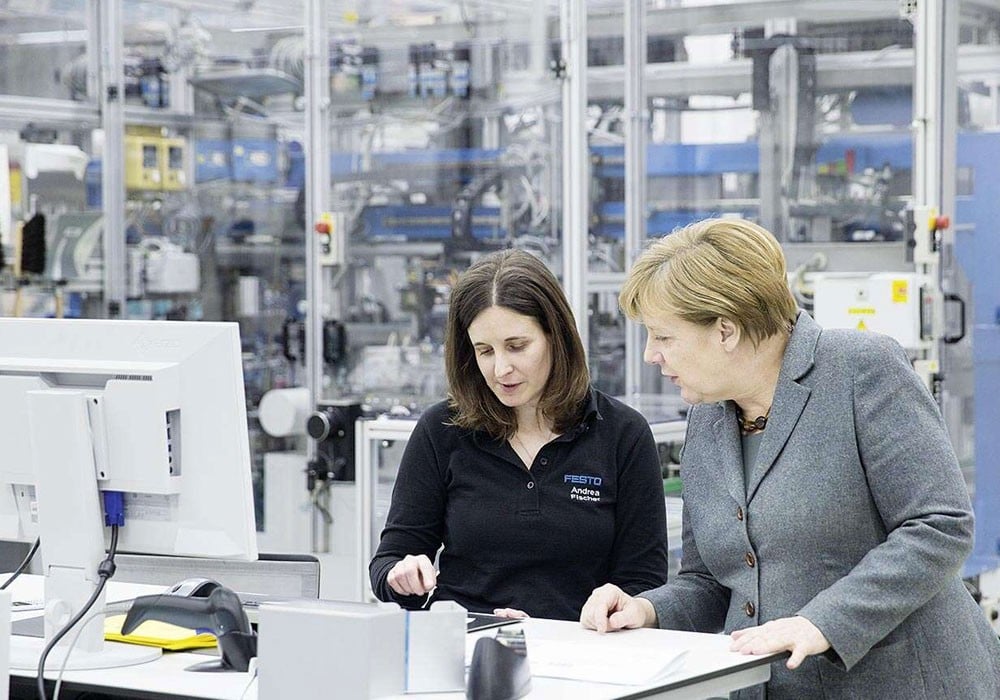GERMANY’S INDUSTRY VISION 4.0
Although Germany is a country that took its place in the history of industry and started industrialization late, has succeeded in turning this into an opportunity and has become a country that can come out of most of the economic crises with the least damage. The fourth largest industrial country in the world and the largest in Europe, now takes on the role of leading the Industry 4.0 revolution.

Industry 4.0, like other great revolutions that humanity has made in the industrialization process, opens another unique window for us. Manufacturers have constantly toyed with the properties of these windows, experimenting with various strategies since they started thinking about efficiency. The 19th century changed when people who observed how valuable water and steam power were, included this power in production. In the 20th century, Henry Ford, in his automobile factory, used the production line that connects production to every part of the big picture; triggered the entry of electricity into all production structures. In a short time, technologies fed by electrical and mechanical energy left their place to rapidly developing digital technologies. In the coming centuries, it is not difficult to say that the 21st century will be remembered with the change it has experienced with Industry 4.0.
Giants of the industry such as BMW, Bosch and Siemens, which make up a large part of Germany's national income and employment, are leading the Industry 4.0 revolution with the changes and strategies they apply in production flows. The country's vision and engineering culture are the reasons why these companies come to the fore at the global level. Germany, which is among the countries that hold the power in the industrial world, is distinguished by its high technology power along with the parameters of speed, quality and experience in mass production. Countries such as Germany and the USA have to combine their traditional production models with their existing technological knowledge in order not to lose the top to dynamics such as China and India, which are rapidly rising.
The concept of Industry 4.0 appears as a revolution built on exactly this necessity. It covers all attempts to improve traditional production processes, which cannot be completely abandoned, with the practices gained by information technologies. The term Industry 4.0 was first used at the Hannover Exhibition 2011, the world's largest industry exhibition. Angela Merkel cited Industry 4.0, which she sees as connecting digital technologies, industrial products and logistics, as a chance for Germany to become the leading country of the digital world at the National IT Summit in Hamburg in October 2014. Merkel also recently introduced Industry 4.0 at the World Economic Forum in Davos as the concept they will use to rapidly adapt to the interdependent world and industrial production. Germany proves Merkel's commitment to Industry 4.0 in every field from giant companies to fast-growing start-ups.


